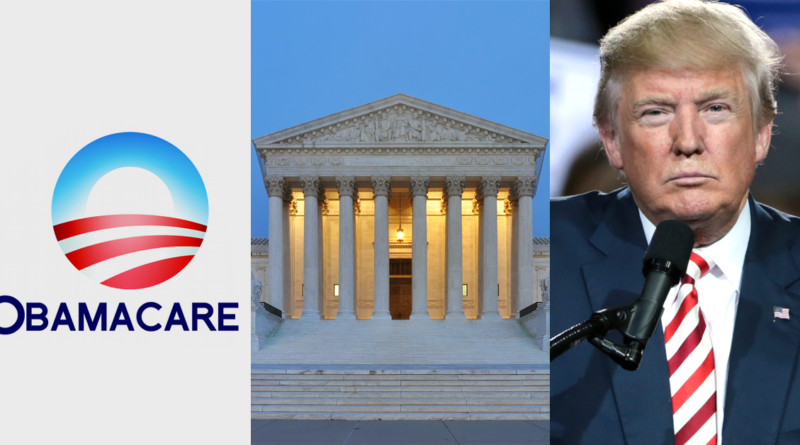Trump Demands Supreme Court to Quash Obamacare Again
Donald Trump’s administration asked late on Thursday for the supreme court to terminate the Affordable Care Act (ACA), a decision which could see an estimated 20 million Americans lose their health insurance.
In the midst of the public health and economic crises borne from the coronavirus pandemic, the administration argued against the law in an legal brief filed in support of a supreme court case led by Texas and other conservative states seeking to overturn the act.
The brief did not mention Covid-19 and the White House has not said how the ACA, popularly known as Obamacare, would be replaced, should the supreme court rule in its favor. Such a ruling would also eliminate protections for people with pre-existing health conditions currently included under the law.
Oral arguments for the case are not yet scheduled, but they would probably take place in the autumn and coincide with the election. In two previous challenges to the law, the supreme court has left the ACA largely intact.
California’s attorney general, Xavier Becerra, who is leading a coalition of 20 states and Washington DC to defend the ACA at the supreme court, said the fight comes “at the most crucial time”.
“The ACA has been life-changing and now through this pandemic, we can all see the value in having greater access to quality healthcare at affordable prices,” Becerra said. “Now is not the time to rip away our best tool to address very real and very deadly health disparities in our communities.”
Since Barack Obama signed the ACA into law in March 2010, Republicans have sought to “repeal and replace” one of his key achievements.
Despite Republicans having full control of Congress in 2017, and the support of the president, they failed to repeal Obamacare that year.
The most recent supreme court case was filed in response to another 2017 act of Congress.
That year, Congress passed tax legislation which did away with fines for people who don’t have health insurance, while leaving other parts of the law in place. In the supreme court case, Texas and other states argue the entire ACA should have been eliminated with the fines, known as the individual mandate.
The Trump administration’s lawyer, attorney general Noel Francisco, wrote Thursday that because the individual mandate was invalidated, “then it necessarily follows that the rest of the ACA must also fall”.
Support for the ACA is deeply partisan and it had the least public support during Barack Obama’s presidency. But since Trump took office, the public has slightly been more in favor of the ACA than against it, according to the polling firm Gallup. A March 2020 poll showed it was supported by 52% of Americans.
The timing of the supreme court case is concerning for Republicans. Their earlier efforts to repeal the ACA helped drive Democrats to win the House in the 2018 midterm elections. And by filing the brief, the Trump administration has ensured their efforts to again take down the law will be a talking point for Democrats in the next four months before the election.
“President Trump and the Republicans’ campaign to rip away the protections and benefits of the Affordable Care Act in the middle of the coronavirus crisis is an act of unfathomable cruelty,” the House speaker, Nancy Pelosi, said in a statement.
The Center for American Progress, a left-leaning thinktank, estimated 23 million people could lose coverage if the ACA is struck down.
The same day the Trump administration filed the supreme court briefing, the US health department revealed close to half a million people who lost their health insurance during the pandemic had obtained coverage on the health exchange created under the ACA, HealthCare.gov. That’s an increase of 46% from the same time period last year.
The data probably underrepresents how many people were able to switch to government health exchanges after losing their insurance in the economic shutdown because it does not include tallies from states such as California, which has its own state program.

